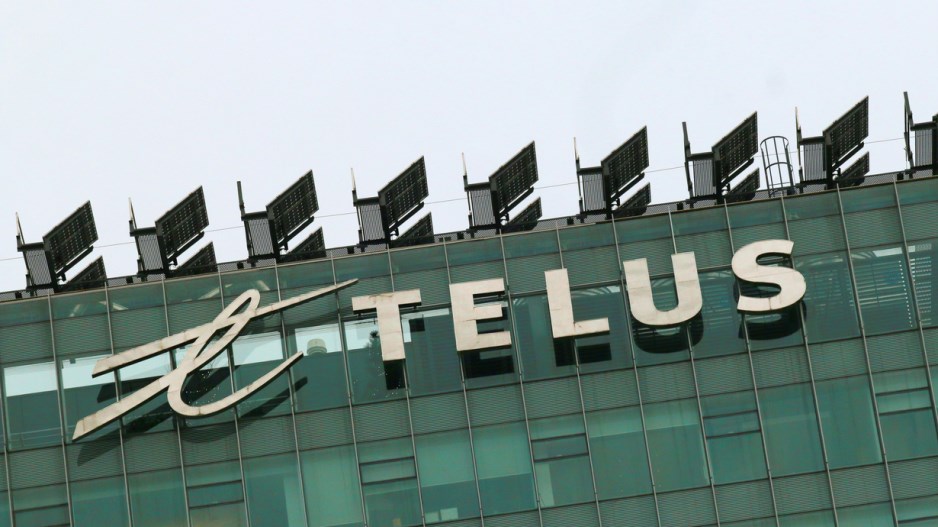Plans for Rogers Communications Inc. (TSX:RCI) to acquire Shaw Communications Inc. (TSX:SJR) in a $26-billion deal won’t be quite the same game-changer for Canada’s telecom landscape as, say, the transition from rotary phones to smartphones.
But the proposed transaction leaves question marks hanging over the corporate make-up of the country known for its limited number of telecom competitors.
On the West Coast, Telus Corp. (TSX:T) found itself being overtaken Monday as the Canada’s second largest telecom provider based on market capitalization.
If the deal — still subject to regulatory approval from the Competition Bureau — goes through, might Canadians expect a further cozying up between the Vancouver-based company and No. 1 competitor Bell?
Canadian telecom analyst Mark Goldberg told BIV it’s important to think of mobile and landline services as separate issues to examine.
“For landline, there is no change in the competition landscape. Today, Shaw is a TV and wireline competitor and under the new state, it would be Rogers,” said Goldberg, principal of Mark H. Goldberg & Associates Inc.
Shaw completed its acquisition of Wind Mobile in 2016 following the $1.6-billion purchase of the upstart provider’s wireless assets.
It’s since been building out that original Wind network under the Freedom Mobile brand in Western Canada, and launched a new Shaw Mobile brand last year.
Rogers said the acquisition deal would result in 3,000 jobs created across B.C., Alberta, Saskatchewan and Manitoba as it builds out its wireless and broadband infrastructure in the coming years.
The company is also committing $2.5 billion to expanding its 5G network in Western Canada.
Goldberg told BIV the merger would allow Rogers to accelerate its 5G deployment in Western Canada.
“5G deployment is aided by having fibre backhaul from the towers. Telus already has extensive fibre facilities in Western Canada and a network agreement with Bell to help both companies with their network deployment in each other's territory,” he said.
“I don't see the proposed transaction impacting the conditions for Telus and Bell to expand their relationship.”
Telus’ initial 5G rollout in 2020 trailed Rogers by five months and Bell by one week.
Telus had long been aligned with Huawei on its 5G ambitions, but Telus and Bell eventually left the Chinese company in the dust last June when they announced they were tapping European vendors Telefonaktiebolaget LM Ericsson (Nasdaq:ERIC) and Nokia Corp. (HEL:NOKIA) to build out their 5G networks.
Telus is also tapping Samsung Electronics Co. Ltd. to help deploy its 5G products and has been ramping up its 5G deployment in earnest since mid-2020.
As far as internet services, Goldberg noted that Rogers’ Connected for Success program offering high-speed, low-cost internet to eligible recipients will expand into Shaw territory.
“Telus already offers Internet For Good in much of those areas, so this should make Western Canada one of the best served areas for delivery of an array of low-income broadband services from a choice of suppliers,” he said.
Meanwhile, the Competition Bureau said it’s unclear how long its review of the deal will take.
In a statement, the federal agency said that if the proposed deal was “likely to substantially lessen or prevent competition” it would take appropriate action.
But Vancouver-based consumer advocacy group OpenMedia said it’s already apparent the acquisition threatens to reduce choice within the country’s wireless market.
“This deal cannot be approved. Canadians already suffer from sky-high internet prices. We need more competition in Canada – not less. Over the years, we've seen competitor after competitor swallowed up by the Big Three. The result is always the same – more profits for the Big Three, worse plans and less choice for Canadians,” executive director Laura Tribe said in a statement.
Prime Minister Justin Trudeau pledged during the 2019 election campaign his government would encourage the country’s biggest wireless players to lower prices 25% over two years.
If not, he’d seek to introduce more competition into the market.
A July 2020 report from Ottawa found that the 25% target has not been met in B.C. for wireless plans in the 2-5 GB/month categories examined.




